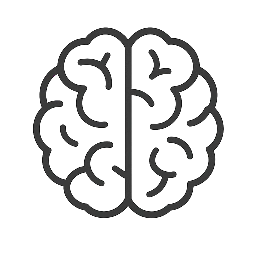
Personalised Psychology Approaches for Individual Needs
In recent years, psychology has seen a significant shift towards personalised approaches that cater to the unique needs of each individual. Traditional psychological methods often apply general principles and therapies to broad populations, but personalised psychology recognises that each person’s experiences, biology, and environment influence their mental health differently. This approach aims to tailor psychological interventions to fit each person’s specific characteristics and circumstances, leading to more effective and meaningful outcomes.
Understanding Personalised Psychology
Personalised psychology involves customising assessment, diagnosis, and treatment based on an individual’s genetic makeup, personality traits, life history, and current context. It integrates various data points such as psychological tests, neuroimaging, genetic information, and personal narratives to understand the individual holistically. By doing so, therapists and clinicians can design interventions that address the root causes of psychological distress rather than just the symptoms.
Key Components of Personalised Approaches
- Comprehensive Assessment: Detailed evaluations that go beyond standard questionnaires to include biological, psychological, and social factors.
- Tailored Interventions: Treatment plans are adapted to the individual’s needs, preferences, cultural background, and specific mental health conditions.
- Continuous Monitoring: Regular follow-ups and adjustments ensure that the approach remains effective and responsive to changes in the individual’s condition.
- Collaborative Process: Patients are actively involved in decision-making, promoting empowerment and adherence to therapy.
Benefits of Personalised Psychology
- Enhanced Effectiveness: Customised treatments often result in better symptom management and quicker recovery.
- Increased Engagement: Patients are more motivated when therapy resonates with their personal experiences and values.
- Reduced Side Effects: By considering biological and psychological differences, unnecessary or harmful treatments can be avoided.
- Holistic Well-being: Addresses multiple aspects of a person’s life, promoting overall mental and emotional health.
Applications in Practice
Personalised psychology is applied in various settings, including clinical therapy, counselling, and digital mental health platforms. For example, cognitive-behavioural therapy (CBT) can be modified based on an individual’s thought patterns and coping styles. In neuropsychology, brain imaging may guide interventions for conditions like depression or ADHD. Furthermore, emerging technologies like AI and machine learning enhance the ability to personalise treatments by analysing large datasets to predict treatment outcomes.
Challenges and Future Directions
Despite its promise, personalised psychology faces challenges such as the need for extensive data collection, ethical concerns regarding privacy, and the requirement for specialised training among practitioners. However, ongoing research and technological advancements are gradually overcoming these barriers. The future of personalised psychology holds the potential for even more precise and accessible mental health care, improving the quality of life for many individuals.
Conclusion
Personalised psychology represents a transformative approach in mental health care, focusing on the individual rather than a one-size-fits-all model. Acknowledging the complexity of human psychology and tailoring interventions accordingly offers hope for more effective, empathetic, and sustainable mental health solutions. As this field continues to evolve, it promises to redefine how psychological care is delivered and experienced.

Leave a Reply